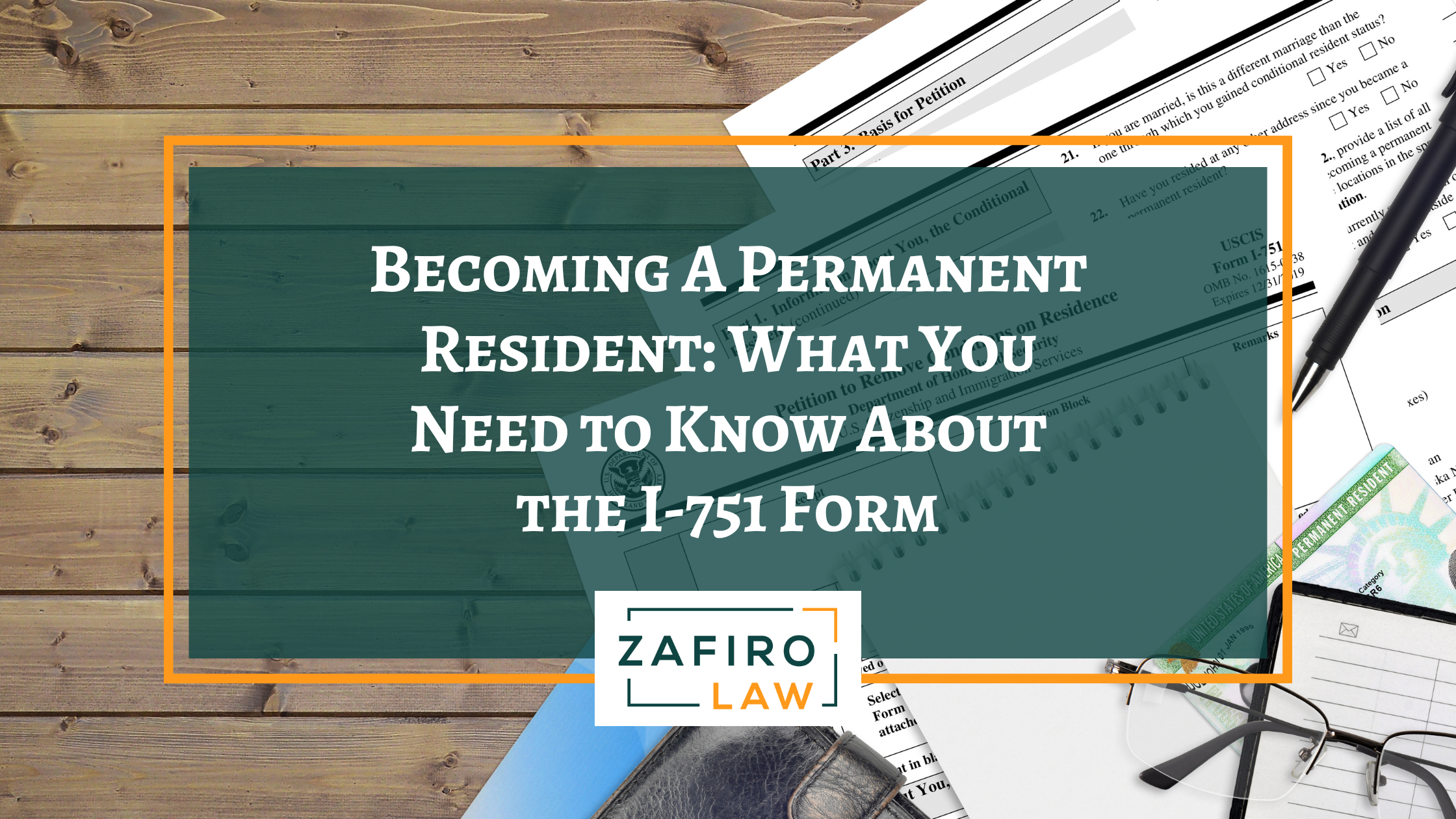Securing permanent residency in the United States is a nuanced process full of legal challenges that must be addressed. One such hurdle is faced by those who initially entered the country on a conditional basis through marriage but saw their marriages end quickly. If you are in this position and are getting a divorce, the path to residency doesn’t end there – it simply changes course. The Form I-751 is known as the Petition to Remove Conditions on Residence. It is a critical tool in this transition, offering a lifeline for those navigating this path solo due to circumstances like divorce or annulment.
Proving Your Relationship Was Genuine
Demonstrating that your marriage was entered in good faith is very serious; it’s the foundation of your I-751 waiver application. It’s about painting a picture of your life that clearly shows your genuine intentions. Alongside the more traditional forms of evidence, like joint bank accounts and utility bills, consider including personal letters, emails, or text messages highlighting the nature of your relationship.
Obtaining affidavits from friends and family members close to you and your spouse is also beneficial because they provide an external perspective on your relationship. Remember, the goal is to compile a comprehensive dossier that leaves no room for doubt in the eyes of USCIS. Detailing the timeline of your relationship through photos and shared experiences can help substantiate your claim, especially when combined with more formal documents.
Charting The Path Forward with Form I-751
Anyone attempting to file an I-751 should seek the advice of an experienced immigration attorney. There is more to it than simply stating your case; it’s about convincingly narrating your story to the USCIS. If your petition is based on a divorce, be prepared to show not just the legal dissolution of your marriage but also the attempts at reconciliation or the reasons behind the divorce. This might include counseling records or communications between you and your spouse documenting your efforts to save the marriage.
Maintaining confidentiality and handling the matter with sensitivity is paramount in abuse situations—and your chosen legal counsel will be well aware of this. They will present evidence essential to keeping you within the United States by ensuring your case is compelling enough to convince the USCIS to allow that. Talk to your attorney about the following questions:
- What specific types of evidence do I need?
- How will this information help me continue my immigration journey despite my divorce?
Some people were part of a legitimate marriage but never started a joint bank account or had a shared cell phone plan. Even though these are excellent examples of evidence that could be used, other options remain. Did you or your spouse file for joint health benefits at work? It’s important to think outside the box to shape your story; your attorney will help you do this.
It’s also essential to frame your narrative to humanize your experience and offer a compelling reason for your solo petition. This could mean detailing your circumstances’ emotional and psychological impact, supported by professional assessments or testimonies. Ultimately, your application should tell a story that resonates with truth and authenticity, clarifying why the waiver is warranted and necessary.
The I-751 waiver process is a testament to resilience and the pursuit of stability and permanence in the U.S. amid personal upheaval. By meticulously documenting the genuineness of your marriage and the reasons for your filing, you build a strong case for your continued residency. For those embarking on this journey, remember that you’re not alone.
Secure Your Path to Permanent Residency
Seeking professional guidance enhances your chances of success. Our team is committed to providing the support necessary to navigate the complexities of the I-751 waiver process. Reach out today to schedule a consultation, and let us help you secure your future in the United States.


